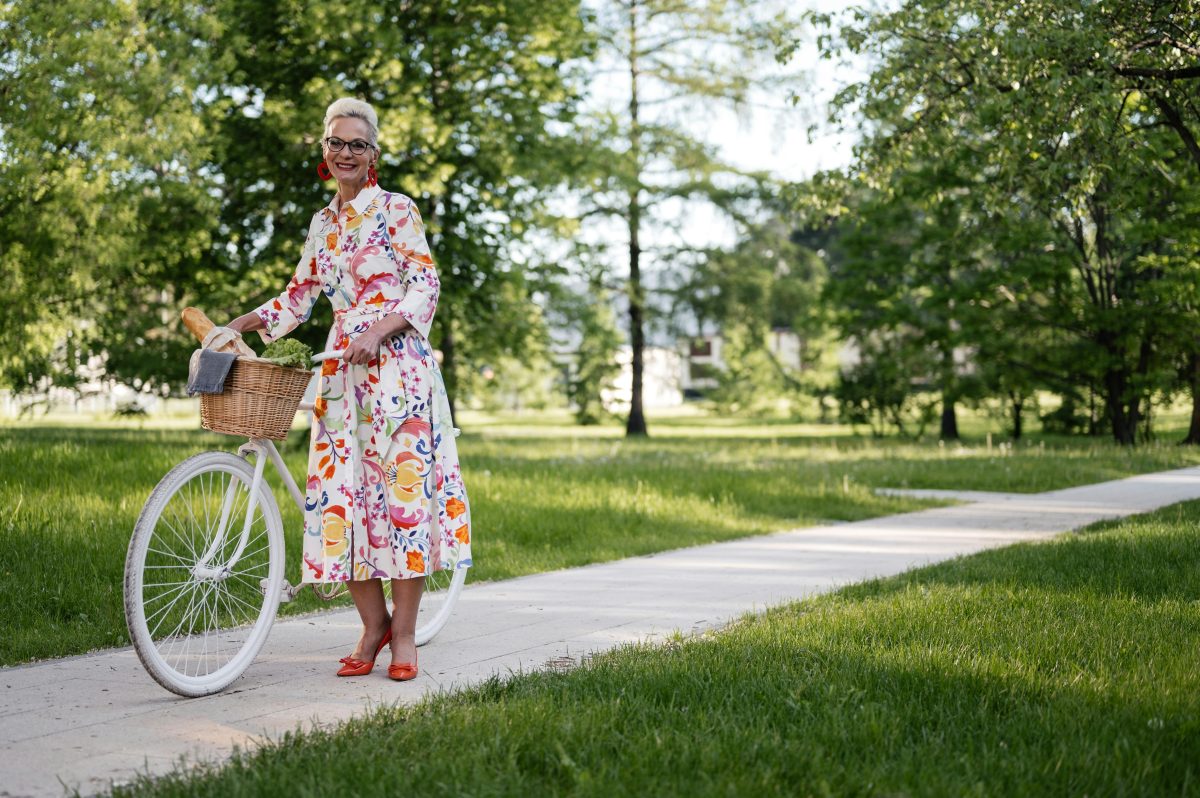Motivation for Seniors: Tips for Older Adults
Understanding the Importance of Staying Motivated in Later Years
Staying motivated as we navigate the later years of life is not just a nice idea; it’s a crucial component of our overall health and well-being. As we age, we naturally face a variety of challenges, be they physical, emotional, or social. Amid these changes, it’s easy to let our enthusiasm dwindle and our passions slip away.
However, maintaining a sense of motivation, purpose, and engagement can provide a much-needed antidote to these struggles, fostering resilience, enhancing mood, and promoting a higher quality of life. Retaining a keen interest in life doesn’t mean we must scale mountains or run marathons unless that’s our groove.

It’s about embracing the magic in the mundane and savoring the normalcy of everyday living.
It’s finding joy in a shared laugh, a good book, a gentle walk, or even a hobby you’ve always wanted to pick up. When met with eagerness and a dash of curiosity, simple, everyday things can serve as powerful sources of motivation, driving us forward into our twilight years with a vitality that defies age.
Staying Physically Active: A Key to Wellness
As we age, keeping our bodies moving is crucial. Let’s not look at it as a chore but rather as a fun part of our day. And guess what? You don’t need to be an Olympian-level athlete to reap the benefits of physical activity.
A simple walk around the block, gardening, or playing with your grandkids can set you on the right path to wellness. Exercise is beneficial for our bodies and the brain. Regular physical activity can help improve our mood by reducing feelings of anxiety and depression.
It boosts our energy levels and helps us sleep better.
Physical activity is not just about staying fit; it’s also about adding more quality to your golden years. Don’t forget that variety is the spice of life, so try different activities and stick with the ones you love the most.
“Old age ain’t no place for sissies.” – Bette Davis
Healthy Eating Habits to Boost Your Energy Levels
You know what they say: You are what you eat. This saying has taken on new significance in our later years. Remembering that our bodies’ requirements can change as we age is paramount.
With a bit more thought to what’s on our dinner plate, we can control our energy levels and reinforce our health. Imagine swapping sugary snacks with more fruits and nuts. These crunchy alternatives are mouthwatering and pack a powerful energy punch to get you through the day.
Or how about a juicy, grilled chicken breast rather than that tempting fast food option? It’s all about making small changes that lead to a profound impact. Because let’s face it, a healthy body results in an active and energized mind.
So, embrace the power of healthy eating for a fulfilling life.
Engaging in Mind-Stimulating Activities
Talk about a brain workout. Just like the muscles in your body, your brain needs exercise to stay strong and agile. Participating in activities that engage and challenge your mind can significantly benefit your mental health and overall well-being.
Activities such as crossword puzzles, reading, playing a musical instrument, or learning a new language can keep your mind sharp and active.
This constant cognitive stimulation can help to slow age-related mental decline and even ward off Alzheimer’s or dementia. You may ask how I fit these activities into my daily routine. Well, it’s easier than you think.
“You are never too old to set another goal or to dream a new dream.” – C.S Lewis
Incorporate brain-boosting activities into your daily life, taking up new hobbies that challenge and interest you, or even switching up your routine can stimulate your brain. Replace mindlessly watching TV with activities like painting, cooking a new recipe, or playing chess with a friend.
These activities may liven up your routine and significantly boost your brain health. So, keep your mind buzzing with excitement and curiosity – it’s never too late to start.
The Role of Social Interaction in Upholding Positivity
There’s nothing quite like an excellent ol’ chinwag with friends, eh? It’s not just about having a blast; it also does wonders for your mood. Interacting with others nourishes your mind, widens your perspectives, and fosters feelings of belongingness.

It’s a mood elevator, putting you in a more positive and energized state. A simple chat over coffee or a hearty laugh over a ridiculous joke can push away clouds of gloom.
Networking isn’t all about making business connections now. It’s also about making friends, joining groups with similar interests, and engaging in discussions that resonate with you personally. By doing this, you get to form meaningful relationships and get access to emotional support.
It is quite like linking your boat to another’s anchor, keeping you steady amidst life’s storms. So, for those frumpy days, remember that social interaction is your best bet to stay positive.
Let’s delve deeper into how social interaction plays a significant role in maintaining positivity:
Boosts Self-esteem: When you mingle with others and share your thoughts and ideas, it instills confidence. You feel valued when your opinions are appreciated. This boosts self-esteem and generates positive vibes.
Tackles Loneliness: No one likes to be alone all the time, do they? Socializing helps combat feelings of loneliness by providing companionship. The sense of belongingness from being part of a group or community can significantly uplift your spirits.
Promotes Mental Stimulation: Engaging in lively discussions or intellectual debates stimulates the mind. It keeps you mentally active and sharpens cognitive skills, contributing to overall mental well-being.
Provides Emotional Support: It is comforting to have someone to share your joys, sorrows, fears, and dreams. Friends provide emotional support during tough times, making coping easier and promoting positivity.
Encourages Personal Growth: Interaction with diverse individuals exposes us to different viewpoints and experiences that enrich our understanding of life. This broadened perspective fosters personal growth, leading to inner peace and happiness.
So folks, whether it’s catching up over brunch with friends or participating in an online discussion forum – don’t shy away from social interactions. They’re fun and crucial in keeping those positive vibes flowing.
“You can’t help getting older, but you don’t have to get old.” – George Burns
Exploring New Interests and Hobbies
Old age can be a beautiful season to rediscover oneself. After spending most of their lives working and taking up responsibilities, many people find themselves with a surplus of time once they retire. This newfound freedom presents the perfect opportunity to explore curiosities and passions that were left on the back burner.

Don’t hesitate to step into new territories; it’s the best way to learn and grow constantly.
Have you ever considered learning the art of pottery? How about coding, painting, gardening, or even that instrument you fancied in your younger years?
These are more than just hobbies. They channel your energy into something productive and fun.
It’s like opening a brand new book and finding a world brimming with novel ideas you had no idea about. Plus, they keep you engaged and provide a sense of purpose in your daily routine over the years. So let these interests color your days with excitement and fulfillment.
Volunteering and Giving Back to the Community
In the hustle and bustle of modern life, it’s easy to forget the importance of staying connected and giving back to our community. However, it’s never too late to get involved. Becoming a volunteer in local community projects, charities, or social causes often brings a sense of fulfillment and purpose.
It’s a fantastic way to get outdoors, meet fascinating people, and make a difference in the lives of those less fortunate.
One of the often overlooked benefits of volunteering, especially in our later years, is its positive impact on mental health. Helping others can create a natural sense of accomplishment and a positive self-image. It can also reduce anxiety and combat depression by shifting attention away from our challenges onto the meaningful task at hand.
“We don’t grow older, we grow riper.” – Pablo Picasso
Suddenly, you’re not just an individual but a vital part of a team working towards a collective goal. Every little action helps, and every helping hand strengthens the community.
Maintaining a Positive Attitude Towards Aging
Nothing beats a can-do approach when it comes to aging. It’s all about embracing the golden years with an attitude soaked in positivity, resilience, and acceptance. This outlook is good for your mental health and directly impacts your physical well-being.
Live life in a spirit of enthusiasm and remain hopeful. After all, age is just a number, and growing older doesn’t mean stopping all fun and enjoyment. It’s rather a time to sit back, savor past achievements, and look forward to all that’s yet to come.
Now, having a positive attitude doesn’t mean ignoring the real challenges of aging. Health may waver. Energy levels may not be the same. There could be a sense of loss associated with retirement.

But guess what? It’s the way we respond to these challenges that truly counts. So, how about seeing these as opportunities to reinvent oneself, discover new interests, renew relationships, and even kick-start a new career? So, let’s cheer up, enjoy this fantastic stage of life, and age with grace and positivity.
FAQs
Why is it important to stay motivated in our later years?
Staying motivated as we age can significantly enhance our quality of life. It helps us remain physically and mentally active, reduces stress, and even increases our lifespan. A positive mindset allows us to enjoy our daily activities and maintain independence.
Can physical activity make a difference in how we feel as we age?
Absolutely. Remaining physically active is a key to wellness at any age. It helps maintain physical strength, balance, and flexibility, which can prevent falls and injuries. It also boosts overall mood and mental sharpness.
What role does diet play in maintaining energy levels as we age?
Diet plays a significant role. Eating a balanced, healthy diet can boost our energy levels, control our weight, and prevent or manage various health conditions like heart disease and diabetes. We must include many fruits, vegetables, lean proteins, and whole grains.
How can I keep my mind sharp as I age?
Engaging in mind-stimulating activities can help. This can include reading, puzzles, games, or even learning a new skill. It keeps your mind sharp and provides a sense of accomplishment.
Does social interaction impact how we feel about aging?
Social interaction is incredibly important. It contributes to a sense of belonging and happiness, reduces feelings of loneliness, and even lowers the risk of specific health issues. Engaging with friends, family, or community groups can boost your overall mood and well-being.
I’m retired now and have a lot of free time. What new interests or hobbies could I explore?
The possibilities are endless! You could learn a new language, start a garden, pick up painting or photography, or even start writing that novel you’ve always dreamed about. Exploring new interests and hobbies can help keep you engaged, active, and excited about life.
Can volunteering make a difference in how I view aging?
Absolutely. Volunteering provides a sense of purpose and fulfillment, allowing you to give back to your community. It’s a beautiful way to stay socially connected, maintain a positive attitude towards aging, and make a difference in the lives of others.
How can I maintain a positive attitude towards aging?
Staying motivated and active, eating healthily, engaging in stimulating activities, interacting socially, exploring new interests, and volunteering are all strategies to maintain a positive attitude toward aging. Remember, aging is a natural process; embracing it with a positive mindset can lead to a fulfilling and happy life.






